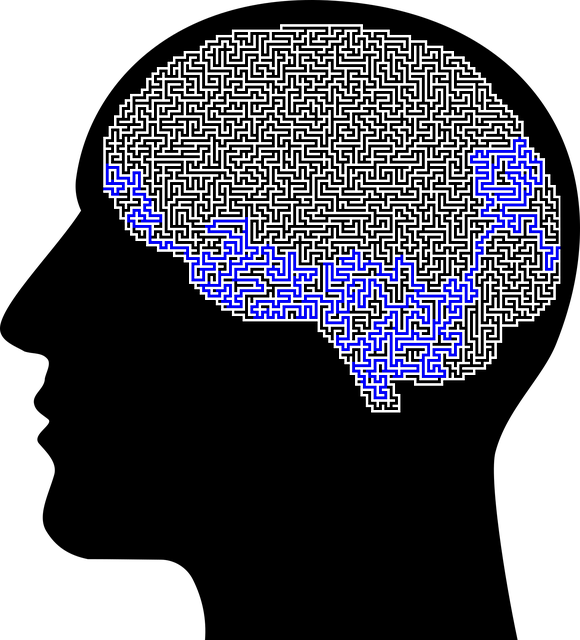Mental health professionals face significant stress in their Aurora workplaces due to high caseloads, complex cases, and toxic cultures. To combat this (Aurora Workplace Issues and Job Stress Therapy), they need comprehensive risk management plans focusing on self-care, open communication, and regular check-ins. This proactive approach, coupled with competency training in empathy and cultural sensitivity, enhances their ability to deliver effective therapy while mitigating job stress and burnout. Continuous strategy implementation, monitoring, and adjustments are key to staying relevant and addressing diverse client needs.
“In the realm of mental health care, effective risk management planning is paramount to ensuring client safety and well-being. With the unique challenges presented by Aurora workplace issues and job stress in therapy settings, professionals must be equipped to navigate these complexities. This article guides mental health practitioners through a comprehensive approach, starting from understanding Aurora-related concerns and identifying common job stressors. It delves into crafting tailored risk management plans, implementing strategies, and ongoing monitoring to foster optimal client care.”
- Understanding Aurora Workplace Issues: A Mental Health Professional's Perspective
- Identifying Job Stress and Common Triggers in Therapy Settings
- Crafting a Comprehensive Risk Management Plan
- Implementation and Ongoing Monitoring for Optimal Client Care
Understanding Aurora Workplace Issues: A Mental Health Professional's Perspective

Mental health professionals often find themselves navigating complex Aurora workplace issues, which can significantly impact their well-being and ability to provide effective therapy. These challenges are multifaceted, encompassing a range from high-stress environments to demanding caseloads and sometimes toxic work cultures. Job stress therapy is not merely about managing symptoms; it’s a proactive approach to ensure professionals can thrive in their careers while maintaining ethical practice standards.
Building empathy and cultural sensitivity in mental healthcare practices is crucial. Healthcare provider cultural competency training equips professionals with the skills to understand and address diverse client needs, navigate challenging conversations, and foster trust. By integrating these strategies, mental health professionals can better manage Aurora workplace issues, promote positive work environments, and ultimately, deliver more meaningful therapy.
Identifying Job Stress and Common Triggers in Therapy Settings

Mental health professionals often encounter unique challenges that can lead to significant job stress and burnout. Identifying and understanding these stressors is a pivotal step in effective risk management planning. In therapy settings, various factors contribute to an individual’s well-being, including the nature of client cases, work load, and interpersonal dynamics. For instance, Aurora workplace issues and job stress related to complex therapy cases, high caseloads, or difficult patient behavior can take a toll on professionals’ mental health.
Common triggers in therapy settings may include exposure to traumatic narratives, managing intense emotions, and navigating ethical dilemmas. To mitigate these risks, professionals can implement strategies such as community outreach program implementation to foster support networks, conflict resolution techniques for constructive interpersonal interactions, and coping skills development for personal resilience.
Crafting a Comprehensive Risk Management Plan

Crafting a comprehensive risk management plan is paramount for mental health professionals to mitigate potential challenges and ensure a robust work environment. This involves a strategic approach that integrates various components, including identifying specific risks associated with Aurora Workplace Issues and Job Stress Therapy. Such risks could encompass burnout, ethical dilemmas, and the impact of high-stress cases on therapists’ well-being.
A tailored plan should prioritize self-care routine development for better mental health, emphasizing the importance of burnout prevention and fostering healthy self-care practices among professionals. By implementing regular check-ins, accessible resources, and promoting open communication, therapy teams can proactively navigate challenges, enhancing overall resilience and service delivery.
Implementation and Ongoing Monitoring for Optimal Client Care

Effective risk management planning for mental health professionals involves continuous implementation and ongoing monitoring to ensure optimal client care. Once strategies are put in place, regular reviews and adjustments are crucial to adapt to evolving challenges and best practices, such as those related to Aurora Workplace Issues and Job Stress Therapy. This dynamic approach ensures that the therapy provided remains relevant and effective in addressing a wide range of client needs.
The process includes establishing clear guidelines for crisis intervention, integrating Mental Health Policy Analysis and Advocacy into routine practice, and creating systems for regular feedback from clients and colleagues. Additionally, Public Awareness Campaigns Development can be a powerful tool to educate both professionals and the public about mental health risks and available resources, fostering an environment that prioritizes prevention and early intervention.
Mental health professionals play a crucial role in helping others manage their well-being, but they also face unique challenges in their workplaces. By understanding Aurora workplace issues and job stress within therapy settings, professionals can proactively craft comprehensive risk management plans. This strategic approach ensures optimal client care by mitigating potential risks and fostering healthier work environments. Through ongoing monitoring and implementation, these plans can be tailored to meet the evolving needs of both practitioners and their clients.














